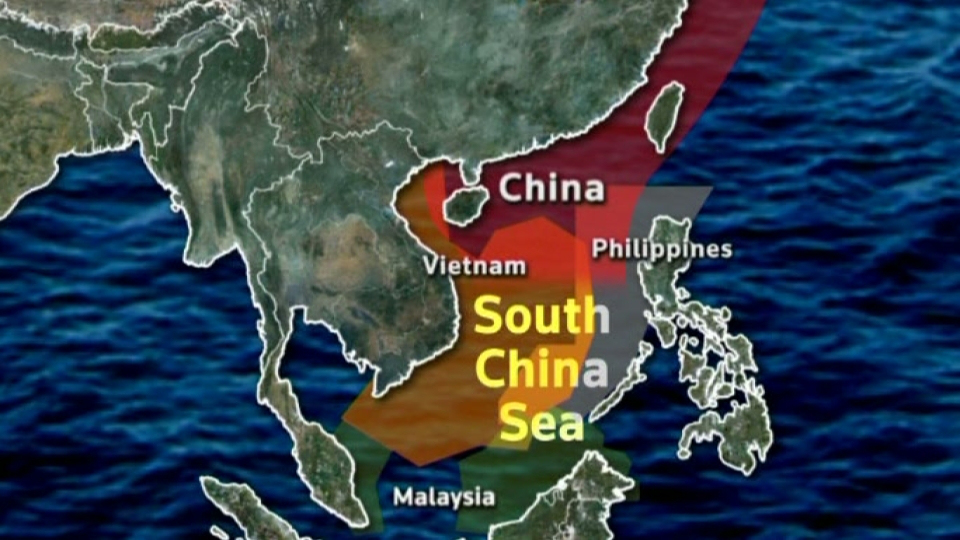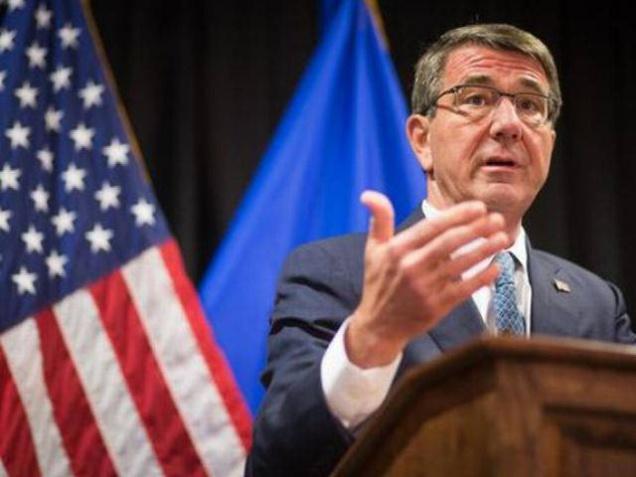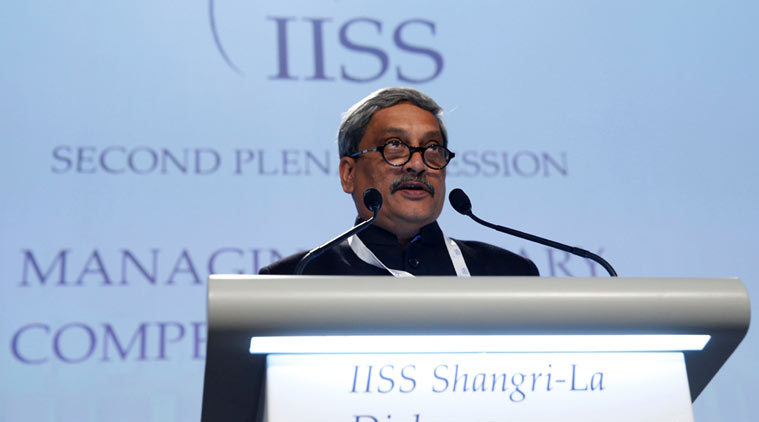
China came under pressure from the United States and Asian powers to rein in its actions in the South China Sea, with the U.S. defense secretary urging Beijing to join in on regional cooperation or risk erecting a “Great Wall of self-isolation.”
U.S. Defense Secretary Ash Carter encouraged China to participate in a “principled security network” for Asia to help counter concerns about its strategic intentions following “expansive and unprecedented actions” in the South China Sea.
Carter also told the Shangri-La Dialogue, a regional security forum in Singapore, that the United States would remain the main guarantor of regional security for decades to come and warned China against provocative behaviour.
Any action by China to reclaim land in the Scarborough Shoal, an outcrop in the disputed South China Sea, would have consequences, Carter said.
“I hope that this development doesn’t occur, because it will result in actions being taken by the both United States and … by others in the region which would have the effect of not only increasing tensions but isolating China.”
The South China Sea has become a flashpoint between the United States, which increased its focus on the Asia-Pacific under President Barack Obama’s “pivot”, and China, which is projecting ever greater economic, political and military power in the region.
“The situation in the South China Sea continues to be viewed with concern,” Indian Defence Minister Manohar Parrikartold the forum. “All countries in the region need to recognise that our shared prosperities and the enviable rate of growth that this region enjoys over past decades will be put at risk by aggressive behaviour or actions by any one of us.”
The United States and many Asian countries were stepping up security cooperation to ensure they were able to make choices “free from coercion and intimidation,” Carter said.
“Even as the United States will remain the most powerful military and main underwriter of security in the region for decades to come – and there should be no doubt about that – those growing bilateral relationships demonstrate that nations around the region are also committed to doing more to promote continued regional security and prosperity,” he said.
Japanese Defence Minister Gen Nakatani, speaking at the same event, said his country would help Southeast Asian nations build their security capabilities to deal with what he called unilateral, dangerous and coercive actions in the South China Sea.
“In the South China Sea, we have been witnessing large-scale and rapid land reclamation, building of outposts and utilization of them for military purposes,” Nakatani said, without mentioning China directly. “No countries can be an outsider of this issue.”
MOST POWERFUL
Trillions of dollars of trade a year passes through the South China Sea, which is home to rich oil, gas and fishing resources. Vietnam, the Philippines, Malaysia, Brunei and Taiwan have claims in the area, and rising tensions have been fuelling a rising in security spending in the region.
“The uncertainty of China’s future trajectory is arguably the main driving concern about possible military competition now and in the future,” Malaysian Defence Minister Hishammuddin Hussein said.
Carter said that for decades some critics had been predicting an impending U.S. withdrawal from the region, but this would not happen.
“That’s because this region, which is home to nearly half the world’s population and nearly half the global economy, remains the most consequential for America’s own security and prosperity.”
In an apparent counter to “America-first” policies expounded by prospective Republican presidential candidate Donald Trump, including suggestions that U.S. troops should be withdrawn from Asia, Carter stressed bipartisan support for continued engagement.
“Regardless of what else was going on at home or in other parts of the world – during Democratic and Republican administrations, in times of surplus and deficit, war and peace – the United States has remained economically, politically, and militarily engaged, as well as geographically located in the Asia-Pacific,” he said.
The Shangri-La Dialogue is being held ahead of a significant ruling expected in coming weeks on a case filed by the Philippines in the International Court of Arbitration challenging China’s South China Sea claims, which Beijing has vowed to ignore.
The United States has been lobbying Asian and other countries to back the judges’ statement that their ruling must be binding, a call echoed by Japan on Saturday.
China has lobbied on the other side for support for its position that the court lacks jurisdiction in the case.

Mr. Carter emphasised possibilities for cooperating with China while stating that the US will remain the pre-eminent power.
‘China, U.S. military can collaborate’
“America wants to expand military-to-military agreements with China to focus not only on risk reduction, but also on practical cooperation. Our two militaries can also work together,” he said, bilaterally or as part of a broader security network to combat global threats like terrorism and piracy.
Tom Mahnken, president of the Centre for Strategic and Budgetary Assessments, a Washington think-tank, praised Mr. Carter’s emphasis on developing partnerships.
“Secretary Carter was right to emphasise multilateral approaches in the Asia-Pacific region. Indeed, America’s alliances and partnerships in the region give us an enduring competitive advantage,” Mr. Mahnken said by email from Washington. “By contrast, China’s actions have increasingly isolated it.”
At a news conference later, Adm Harry Harris, head of U.S. Pacific Command, said that while his forces were ready to confront China if necessary, there have been few significant issues with China lately in the South China Sea.

Although India is not a party to the South China Sea disputes, China is its traditional adversary. They fought a war in 1962, in which India lost land to China. The three-day Shangri-La Dialogue that’s being attended by defense ministers and experts from 50 countries ends this Sunday and covers topics that also include terrorism, cyber crime and North Korea’s nuclear ambitions.
Parrikar said that however small or “however powerful” a country may be, “no commerce or commercial activity takes place in a high tense (region). And I think it is in the interest of everyone, including China, to ensure that the peace remains in this region.” Japan’s Defense Minister Gen Nakatani said it was “getting increasingly important for all nations in the region to establish the order based on the rule of the law.”
Indirectly referring to China, he said, “powerful nations are required to act with self-restraint so as to avoid contingency.” China claims virtually the entire South China Sea as its own, overlapping with territory claimed by other Southeast Asian governments. It has also started building airstrips on artificial islands it built on once-submerged reefs, much to the chagrin of the United States, which worries the build-up will impede freedom of navigation in the busy area.
“All of here attending, I ask you which you choose: between the order based on might or the order based on rule?” said Nakatani. “I believe the order based on the rule is the one which could lead us to sustainable prosperity.” In rebuking Beijing and expressing the views of its neighbors, Nakatani said: “There are some unilateral activities and claims by a nation that asserts power… any activities that go against the international laws, we are very concerned about such situations.”
See more at:
